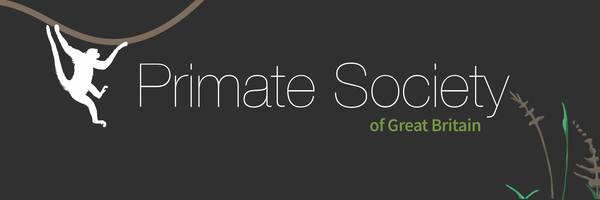CONSERVATION GRANTEES 2024
Rebecca Smith
Making community-based conservation sustainable: an indigenous-led tree nursery for hooded capuchin conservation.
In Paraguay, the hooded capuchin, Sapajus cay, is mainly restricted to the Upper Paraná Atlantic Forest, more than 91% of which has been destroyed since 1940. Protecting what remains is no longer enough, reforestation is urgently required. Long-term conservation is complicated by extreme poverty and will only be sustainable if local people can benefit financially. In 2023 we began an economically-beneficial reforestation programme with the indigenous Mberu Pirapo’i Mbya Guaraní community. Unused land in Mberu Pirapo’i is being reforested with a mixture of 14 different species important for the capuchin monkey and with yerba mate (Ilex paraguariensis) – an Atlantic Forest endemic and a lucrative cash crop. Building a tree nursery in Mberu Pirapo’i, supplying saplings for reforestation, will provide project sustainability and greater control of the programme to the Mberu Pirapo’i.

Photo shared with permission.
Enokenwa Allen Tabi
Engaging Communities in the Conservation of Cross River gorilla and Nigeria-Cameroon Chimpanzee in Tofala Hill Wildlife Sanctuary, South-West Region, Cameroon.
This project will take place in the Tofala Hill Wildlife Sanctuary, Southwest Cameroon. It seeks to engage the local population of communities around the study area in the monitoring of critically endangered Cross River gorilla (Gorilla gorilla diehli) and endangered Nigeria-Cameroon chimpanzee (Pan troglodytes ellioti) using camera traps. These threatened great apes in the target area have been at risk from anthropogenic activities, such as encroachment for farmlands, unsustainable collection of non-timber forest products (NTFPs), poaching and small-scale logging. The project objectives are: 1) to train community rangers on camera trapping, and 2) to monitor the local population status of the target species.
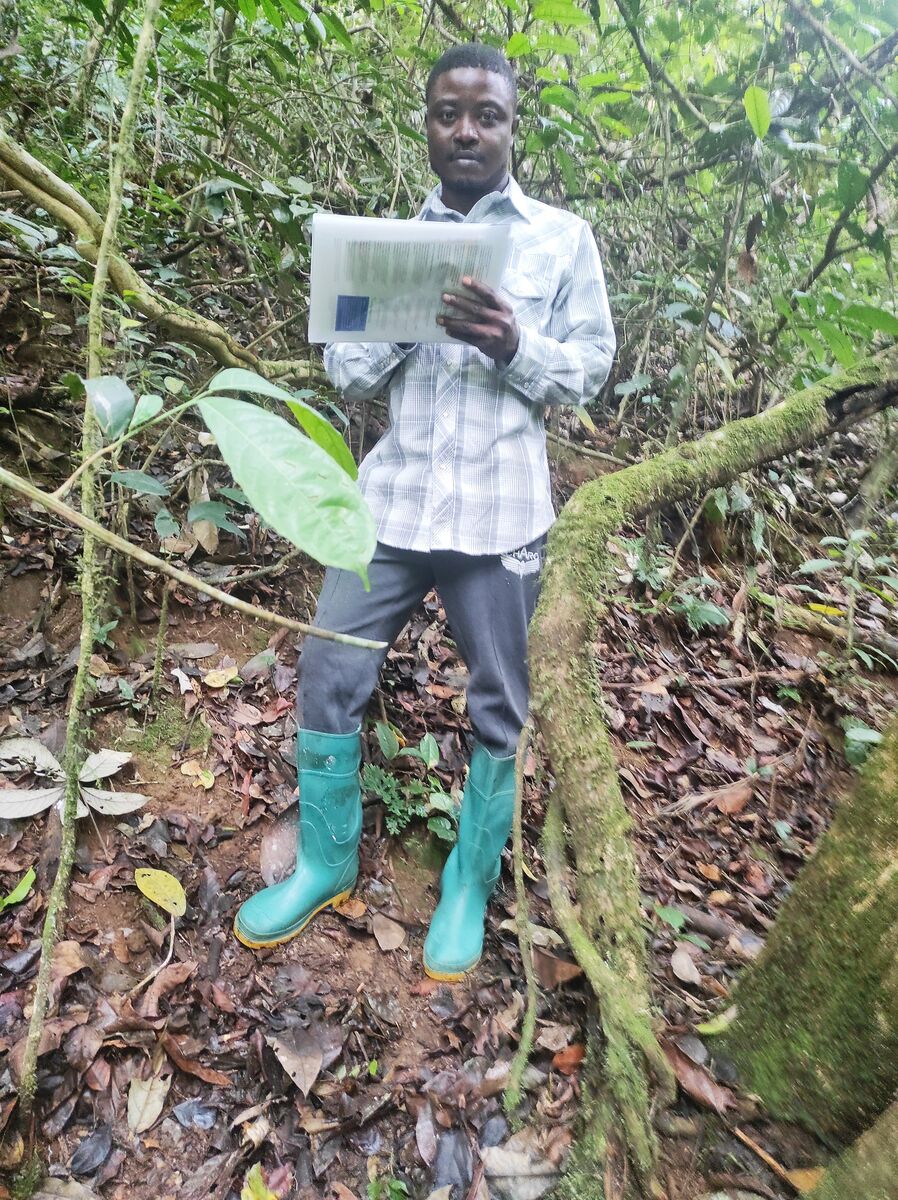
Photo shared with permission.
Nicolas Gorostiaga
Influence of a yellow fever outbreak on the demography and genetic variability of a public health sentinel species (Alouatta caraya) in North-eastern Argentina
Yellow fever (YF), a Flavivirus disease, persists in the tropical forests of South America and Africa. Notable Yellow Fever Outreak (YFO) occurred in Argentina during 2008-2009. Howler monkeys (Alouatta spp.) serve as vital sentinels for epidemiological and public health surveillance. During the recent YFO in Misiones, Argentina, hundreds of howler monkey deaths occurred, resulting in a change in the IUCN conservation status of A. caraya from "Least Concern" to "Vulnerable." This project aims to evaluate population dynamics, changes in genetic variability, and a potential bottleneck event in howler monkey populations at YFO-affected (Misiones) and unaffected control sites (Corrientes).
Project awarded Born Free Foundation funding.

Photo shared with permission.
Matt Wisdom
The role of lemurs and other frugivores as facilitators of ecological restoration in the Ambatotsirongorongo Protected Area, south-east Madagascar
Maintaining plant-frugivore interactions and seed dispersal dynamics are vital to the natural regeneration of tropical forests, and understanding the nuances of these processes is critical in the pursuit of long-term, sustainable ecological restoration. Using a combination of phenological and vegetation surveys, focal observations, camera trapping, and seed germination trials, this project will conduct a thorough study of frugivore-plant interactions and seed dispersal dynamics in the fragmented forest of the Ambatotsirongorongo Protected Area in south-east Madagascar, with the aim of integrating knowledge of these processes into the local forest restoration programme, and in other restoration projects across Madagascar.

Photo shared with permission.
Aislinn Olthoff and Lilli Stenger
Distribution, abundance, and human perceptions of Trachypithecus auratus (VU) and Macaca fascicularis (EN) on Bali and Lombok
Ebony langurs (Trachypithecus auratus; VU) and long-tailed macaques (Macaca fascicularis; EN) are both endemic to Indonesia and classified as threatened by the IUCN. Understanding their distribution and human perceptions is vital to understand interactions in increasingly converted forested habitats like mangrove forests and agroforestry areas. We will collect and update distribution data throughout Bali and Lombok, in agroforestry areas and mangrove forests, using line transects and recce walks. Simultaneously, we will conduct interviews with local communities in these areas. Using our multifaceted approach, we aim to predict future distribution, guide conservation priorities for these monkeys, and foster sustainable coexistence with local communities, ensuring their long-term survival.
Project awarded Trentham Monkey Forest funding.


Photos shared with permission.
RESEARCH GRANTEES 2024
Hassan Al Razi
Behavioural thermoregulation of a chimpanzee population living in a high-elevation forest in Rwanda
Temperature is an environmental factor that broadly affects animal ecology, physiology, and evolution. The maintenance of body temperature within a suitable range is critical for the survival of animals. Like other homeothermic animals, primates deal with a change in the environmental temperature using both physiological and behavioural thermoregulation. Even though chimpanzees are well-studied compared to many other primates, little work has been done on behavioural thermoregulation. Chimpanzees have a wider geographic distribution range than any other great ape and inhabit a variety of habitat types from dry savanna to moist montane forest. All past studies of chimpanzee behavioural thermoregulation were done exclusively on populations in low to mid-elevation forests. The possible thermoregulatory function of great ape nests in cool montane environments has received no empirical consideration to date. Here we focus on a chimpanzee population in Nyungwe Forest National Park, where chimpanzees range up to 3000 m asl, which is the upper limit of their elevation range.

Photo shared with permission.
Mokhlesur Rahman
Assessing behavioural anxiety of globally threatened capped langurs in Bangladesh
Anxiety may have negative impacts on animals’ physical fitness and psychological well-being, thus, studying anxiety is important for welfare and management practices in primates. Animals’ anxiety levels can be assessed non-invasively through measuring self-directed behaviours (SDBs), which are more frequent in stressful situations. Capped langur (Trachypithecus pileatus) is a globally threatened primate species, facing numerous threats all over the range countries, as a result, their population is declining. In Bangladesh, the animals are distributed in continuous forests and isolated forest patches, where people can visit, stay and conduct research and recreational activities. Developmental activities are also being continued in and outside of the forests. Each forest/forest patch has different levels of human disturbances and developmental activities, and so do the langur groups living there. This project is designed to investigate whether and how much these anthropogenic activities affect anxiety levels, by studying three groups of langurs in Madhupur National Park (MNP), experiencing different levels of anthropogenic activities. SDBs and ranging data of the selected langur groups will be collected through behavioural sampling and GPS point locations. This study will help to improve our understanding of how animals respond to anthropogenic disturbances to minimize negative impacts and support their survival in anthropogenically modified landscapes.

Photo shared with permission.
Rachel Robinson
Exploring cultural markers of facial expression production and perception in bonobos (Pan paniscus)
The current literature assumes that facial expression in non-human primates is fixed and is not shaped through social interaction. Humans, however, exhibit between group/cultural variation in facial movements, providing evidence that they can be shaped by proximate, social factors and is not a purely hard-wired inflexible system. Whether non-human primates show similar variation in facial movements across groups has not yet been tested. In this project, I aim to investigate the factors influencing group level variation of facial movement production (Study 1) and perception (Study 2) in two groups of captive bonobos (Pan paniscus) housed at Twycross Zoo. Studying the bonobos at Twycross Zoo presents a unique opportunity to look at how changing social environment shapes behaviour. The bonobos are housed in two fluid social groups with a changing group composition to mimic fission-fusion dynamics observed in the wild. Findings will help inform us about the evolution of complex communication in primates.
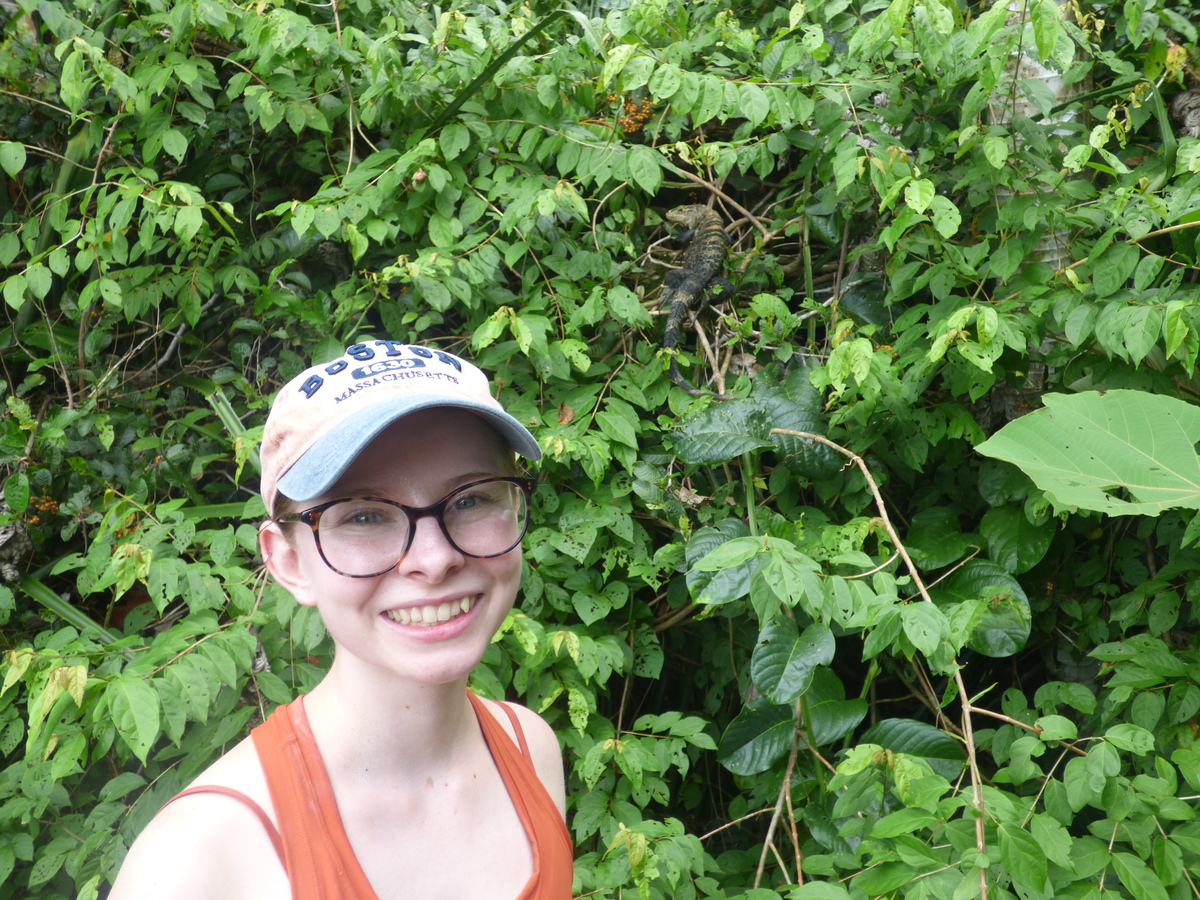
Photo shared with permission.
Rosary Karki
Decommissioned electric cables in Kathmandu: assessing potential canopy bridge need for urban primates
Non-human primates (NHPs) living in urban environment are faced with particular anthropogenic challenges which can present serious risks for their survival. Road crossing is one of the major issues that urban NHPs encounter daily when moving within their home range to access resources (food, sleeping sites). Mortality rates due to road crossing for wildlife such as NHPs is estimated to be one of the major direct threats to animal survival in urban environment. To mitigate these risks, electric cables can be used by wildlife to safely cross busy roads. However, using these cables can present some risks and benefits. While previous studies have shown high mortality rates in NHPs due to electrocution, some research suggested that such cables can serve as canopy bridges in urban environments. However, there is limited information on how frequently these cables are used to cross roads and what factors might influence their use. In addition, there is little/no evidence on what other external factors (seasons or time of day) might influence canopy bridges usage by NHP in urban areas. To fill these gaps, this project aims to assess whether rhesus macaques use the electric cables to mitigate risks associated with road crossing depending on different levels of traffics and whether temporal, spatial, demographic and environmental factors influence the use of the cables.

Photo shared with permission.
Katilyn Gerstner
Examining Seasonality and Anthropogenic Effects on Western Chimpanzee Gut Microbiomes (Pan troglodytes verus) in Savanna Habitat
Microbiomes are invaluable for understanding how primates and nature interact. Microorganisms can influence a host’s nutrition, metabolism, immunity, and behavior. Due to the complexities of pathogen transfer and exposure responses, the gut’s microbiome must be flexible to change to maintain its synergistic functionality. Individual genetics, sociality, and environment are the main drivers shaping the gut microbiome, as seen in apes, monkeys, and lemurs. Microbe diversity and abundances (composition) vary based on seasonal exposure. Yet the impacts of savanna seasonality remain unknown. This research aims to investigate ecological impacts on gut microbiomes of endangered savanna chimpanzees (Pan troglodytes verus) in Senegal by examining how anthropogenic and seasonality affects microbial composition patterns in two savanna chimpanzee communities. Currently, most research that characterizes chimpanzee microbiomes derives from zoos and forested populations. By elucidating the presence and transmission dynamics of pathogens derived from savanna biomes, this research will fill a missing gap that is needed to fully understand what shapes a healthy chimpanzee microbiome.
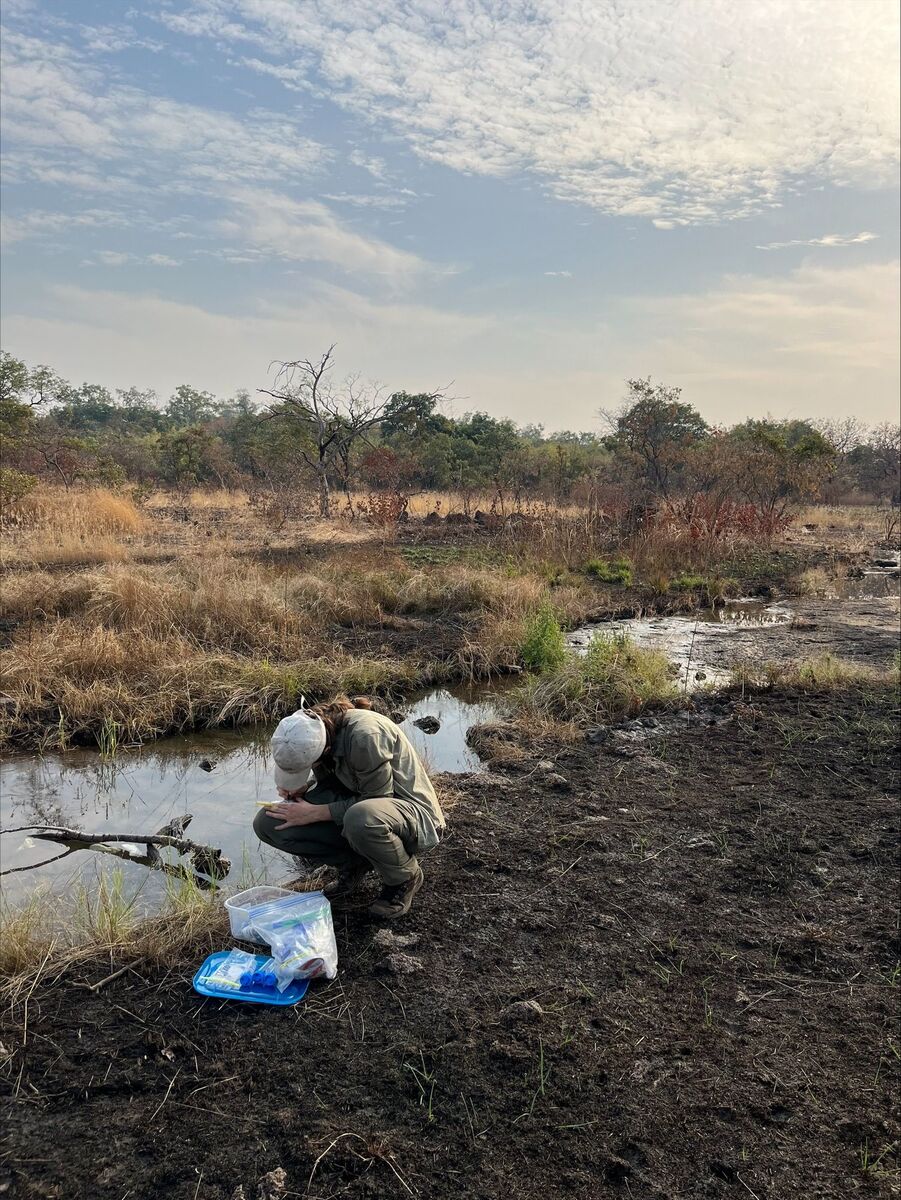
Photo shared with permission.
Carolina Manzano
Mapping new occurrence areas and occupancy of primate species in the fragmented landscape of Pontal do Paranapanema, São Paulo, Brazil
The Black lion tamarin (Leontopithecus chrysopygus), an endangered primate, is endemic to the Atlantic Forest in southeastern Brazil, a global biodiversity hotspot. The species faces severe habitat loss and fragmentation, with only 6.4% of its original forest habitat remaining. The only viable population (approx. 1,100 animals) lives in the Morro do Diabo State Park (33,800 hectares), located in the Pontal do Paranapanema region, westernmost part of São Paulo. This same region has four other fragments that belong to the Black lion tamarin Ecological Station (ESEC-MLP; 6,700 hectares), a protected area that, despite its name, has the presence of the species confirmed in only one of them. Passive acoustic monitoring (PAM) is an efficient, non-invasive, and cost-effective tool, recently employed in species conservation. The use of autonomous recording units has revealed the presence of a small population of black lion tamarins in an isolated fragment of the Pontal region, where the population was declared extinct, showing PAM’s advantages over traditional methods like censuses and camera trapping. Considering the crucial role that the primate community in the region plays as seed dispersers and that the fragments of the ESEC-MLP are among the largest remnants of inland Atlantic Forest in São Paulo, it is necessary to understand the presence and occupation of these primates in the region. This proposal aims to estimate the distribution and occupancy of the black lion tamarin, as well as two sympatric primate species - the brown howler and the black capuchin monkey - across four ecologically significant forest fragments within the ESEC-MLP, using PAM. Additionally, the project will investigate the impact of environmental and landscape factors on species occurrence, thereby enriching our understanding of how these primates survive and thrive in fragmented habitats.
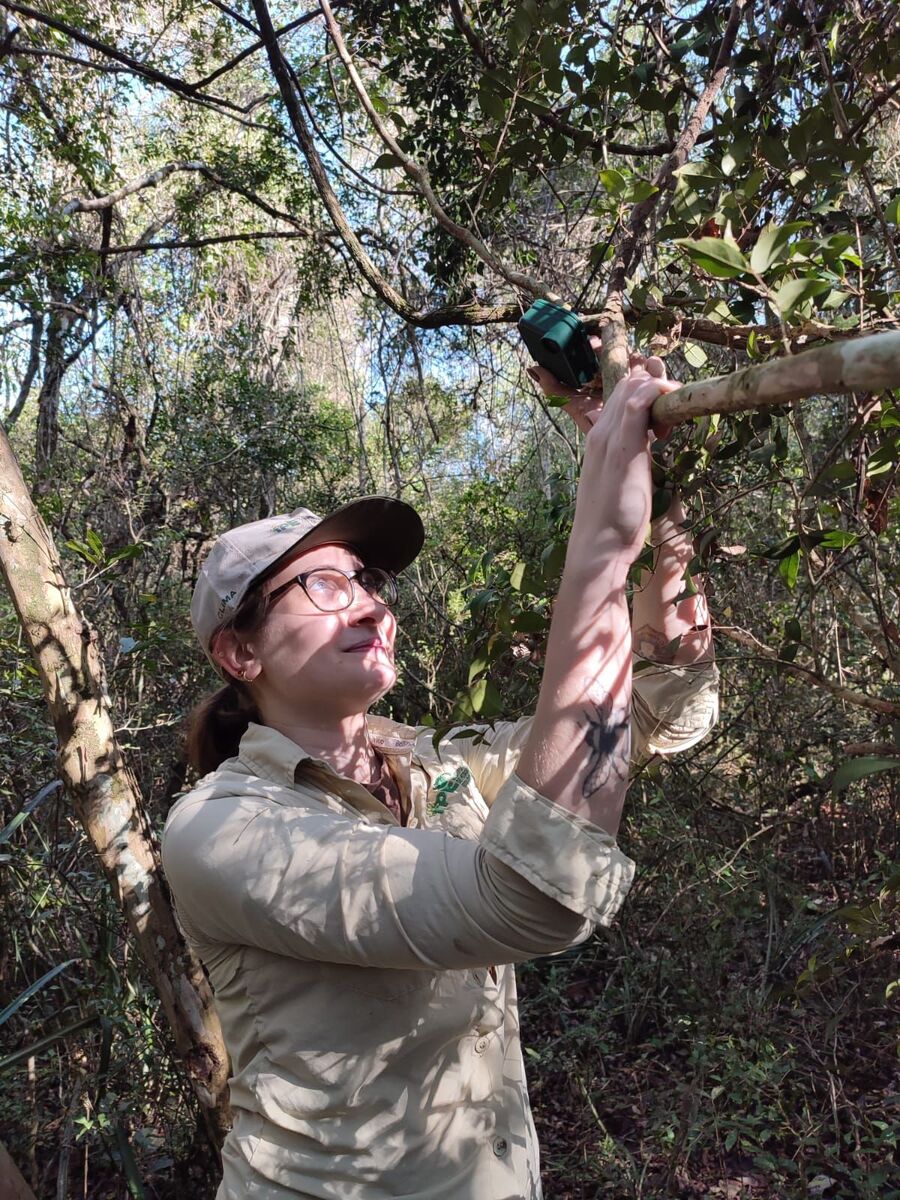
Photo shared with permission.
CAPTIVE CARE GRANTEES 2024
Vu Hoang
Prosocial responses to stress-related non-verbal behaviours in captive gibbons (Hylobatids)
This project aims to investigate prosocial responses to stress-related non-verbal behaviours in Hylobatids species which have potential for informing welfare management. While stress-related behaviours have been found to be associated with affiliative behaviour in other primate species (e.g., macaques), little is known about their use in gibbons. By testing whether stress-related behaviours are associated with increase prosocial responses from conspecifics, we can understand more about their function and relevance to welfare. The proposed study uses an observational approach to study N=10 gibbons (4 species; agile, pileated, siamang and Northern white-cheeked) at Twycross Zoo. I will use focal sampling methods to record stress-related behaviours (e.g,. self-scratching), facial behaviours (using GibbonFACS) and prosocial responses to these behaviours from conspecifics. I will use BORIS software to code these behaviours. By identifying behaviours linked to stress and examining their social outcomes, this study seeks to understand the adaptive value of these behaviors and their role in gibbon social dynamics. Overall, this research contributes to the understanding of gibbon welfare and social behavior, offering insights into their well-being and potential methods for welfare assessment.

Photo shared with permission.
Jack Lewton
Using AI to enhance chimpanzee welfare
Zoos play a prominent role in wildlife conservation by both establishing breeding programs to ensure the genetic diversity of captive species that could then be reintroduced into the wild, and offering research opportunities to better understand the behaviour and ecology of endangered species. For this reason, ensuring the high welfare of captive animals, which encompasses both individuals’ physical and mental health, has become one of the key priorities of zoos. Yet, data collection for welfare assessment often requires expertise, time, and resources, with potential for operator errors and stress-inducing procedures. In contrast, recent advancements in data science and artificial intelligence offer the opportunity to automatically monitor the behaviour and health of the animals, reducing the associated costs, resources and errors. To test this, the proposed project aims to develop a vision framework for automated behaviour analysis of captive chimpanzees (Pan troglodytes) using deep learning that will identify individual chimpanzees and monitor their behaviours in real-time and assess their welfare status. If successful, this framework will be ultimately used to develop an app for keepers to monitor captive animal welfare, which will benefit zoos by maintaining high welfare standards while reducing the monitoring costs and time needed to monitor animal welfare.

Photo shared with permission.
